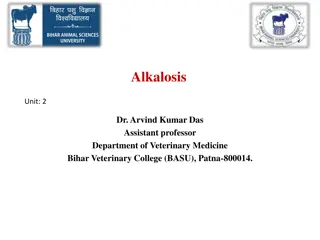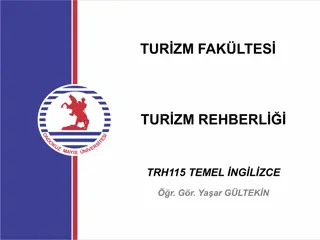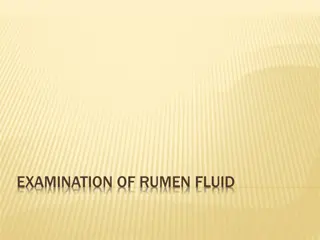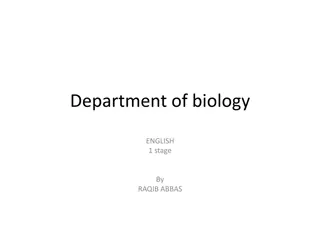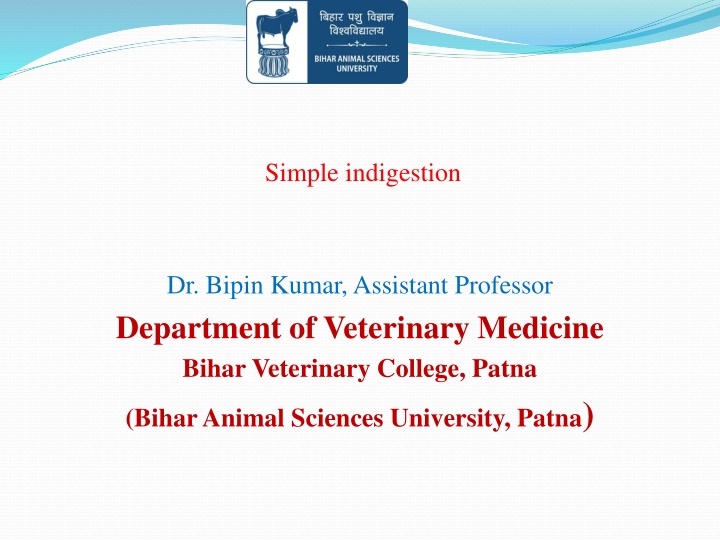
Simple Indigestion in Ruminants
Learn about simple indigestion in ruminants, a minor disturbance in gastrointestinal function primarily affecting cattle. Explore its causes, clinical signs, diagnosis, and treatment options. Dr. Bipin Kumar, Assistant Professor at Bihar Veterinary College, provides insights and images for better understanding.
Download Presentation

Please find below an Image/Link to download the presentation.
The content on the website is provided AS IS for your information and personal use only. It may not be sold, licensed, or shared on other websites without obtaining consent from the author. If you encounter any issues during the download, it is possible that the publisher has removed the file from their server.
You are allowed to download the files provided on this website for personal or commercial use, subject to the condition that they are used lawfully. All files are the property of their respective owners.
The content on the website is provided AS IS for your information and personal use only. It may not be sold, licensed, or shared on other websites without obtaining consent from the author.
E N D
Presentation Transcript
Simple indigestion Dr. Bipin Kumar, Assistant Professor Department of Veterinary Medicine Bihar Veterinary College, Patna (Bihar Animal Sciences University, Patna)
Introduction Simple indigestion is a minor disturbance in ruminant GI function that occurs most commonly in cattle and rarely in sheep and goats. CAUSES Dietary abnormalities of minor degree like Indigestible Roughage, particularly when protein intake is low. Moldy, overheated and frosted . Moderate excesses of grain and concentrate intake. Prolonged or Heavy oral dosing with antimicrobials.
PRIMARY ATONY Dietary abnormalities. Increase or decrease pH of the contents. Accumulation of indigestible food. Putrefaction of protein Production of toxic amides and amines histamine.
CLINICAL SIGNS Reduction in appetite Mild depression and dullness. Rumination ceases and depressed ruminal movements - in frequency and amplitude Rumen larger than normal with mild abdominal pain and Discomfort Moderate tympany with doughy rumen Dry Feces and quantity reduced. 24 hrs later feces are softer and voluminous and malodorous. No systemic reaction.
CLINICAL PATHOLOGY Urine: ketone SAT Rumen fluid : cellulose digestion test, pH test
DIFFERENTIAL DIAGNOSIS TRP Acidosis LDA RDA Abomasal volvulus vagal indigestion secondary ruminal atony phytobazoars
TREATMENT Most cases recover spontaneously. Feeding of good quality palatable hay Rumenatorics:. Metoclopromide : for hypomotility associated with vagal nerve damage. Epsom salts 0.5 to 1.0 kg/ adult cow Reconstition of ruminal microflora




